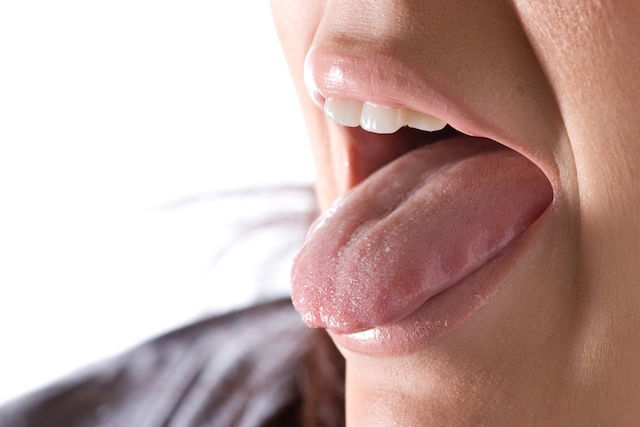How to Get Rid of Bitter Tongue After Fever
A bitter taste in the mouth can occur for many reasons ranging from simpler problems, such as poor oral hygiene, to more serious problems, such as a yeast infection or acid reflux.
Smoking cigarettes can also cause a bitter taste in the mouth, lasting a few minutes to a few hours. This typically improves after eating other foods, drinking water, or brushing your teeth.
However, if the bitter taste lasts for a long time or if it happens frequently, a consult with a general practitioner or a gastroenterologist is recommended to assess whether the symptom is due to a medical condition.

1. Poor oral hygiene
This is the most common cause for a bitter taste in the mouth, especially if it occurs after waking up. A build-up of saliva and bacteria on the tongue, teeth, and gums can lead to bad breath and changes in taste perception.
What to do: Brush your teeth at least twice a day, once after waking-up and again before going to sleep. It is also very important to brush the tongue to prevent coated tongue, which is a build-up of bacteria and dead cells that can also contribute to foul breath.
2. Antibiotics or antidepressants
There are some drugs that, when ingested, are absorbed in the body and then released in the saliva, causing a bitter taste in the mouth. Some examples include antibiotics (e.g. tetracyclines), gout medication (e.g. allopurinol), and lithium. Some drugs used to treat heart disease can also cause a bitter taste.
People who use antidepressants may experience a dry mouth, which can also alter taste perception.
What to do: The bitter taste usually resolves within a few days of taking a new medication. However, if it is constant and unpleasant, notify your prescriber, who may suggest an alternative medication for you.
3. Pregnancy
Dysgeusia, a change to taste perception, is a very common symptom for many women during the first trimester of pregnancy. It arises due to hormonal changes and usually resolves within a few days.
Some pregnant women may report a taste similar to having a coin in their mouth or drinking water from a metal cup, for example.
What to do: An effective way of getting rid of the bitter taste in the mouth is to drink lemonade or suck on a lemon popsicle.
4. Vitamin supplements
Some vitamin supplements that contain high amounts of metallic substances, such as zinc, copper, iron, or chromium, can cause a metallic and bitter taste in the mouth. This side effect is very common and usually appears once the supplement is completely absorbed in the body.
What to do: It is recommended to wait a few minutes to allow the body to fully absorb the supplement. If the bitter taste is very intense or persists, you should discuss the possibility of changing your dose or using an alternative supplement with your prescriber.
5. Gastroesophageal reflux disease (GERD)
GERD happens when stomach content backs-up into the esophagus during digestion. The acid can flow back up to the mouth, leaving a bitter taste.
What to do: Avoid eating foods that are very fatty or difficult to digest, as they increase the acidic content in the stomach. It's also important to avoid eating very large meals, as they make it difficult for the stomach to digest efficiently.
6. Liver problems
When the liver is not working properly, the body begins to accumulate high amounts of ammonia, which is a toxic substance normally transformed into urea by the liver and eliminated in the urine. Increased levels of ammonia cause a change in taste, similar to fish or onion.
What to do: Liver problems usually present with other symptoms, like fatigue or general malaise. Therefore, if liver disease is suspected, it is recommended you seek the medical opinion of a gastroenterologist, who can confirm a diagnosis and start treatment if necessary.
7. Respiratory infections
Bacterial infections in the upper respiratory tract (e.g. colds, rhinitis, sinusitis or tonsillitis) can cause a bitter taste in the mouth due to by-products produced by the bacteria.
What to do: It is important to drink at least 2L (about 8 cups) of water per day, as this helps to both relieve the bitter taste and speed-up recovery. However, it is also recommended to consult a general practitioner to confirm any diagnosis and start treatment as indicated.
How to Get Rid of Bitter Tongue After Fever
Source: https://www.tuasaude.com/en/bitter-taste-in-mouth/